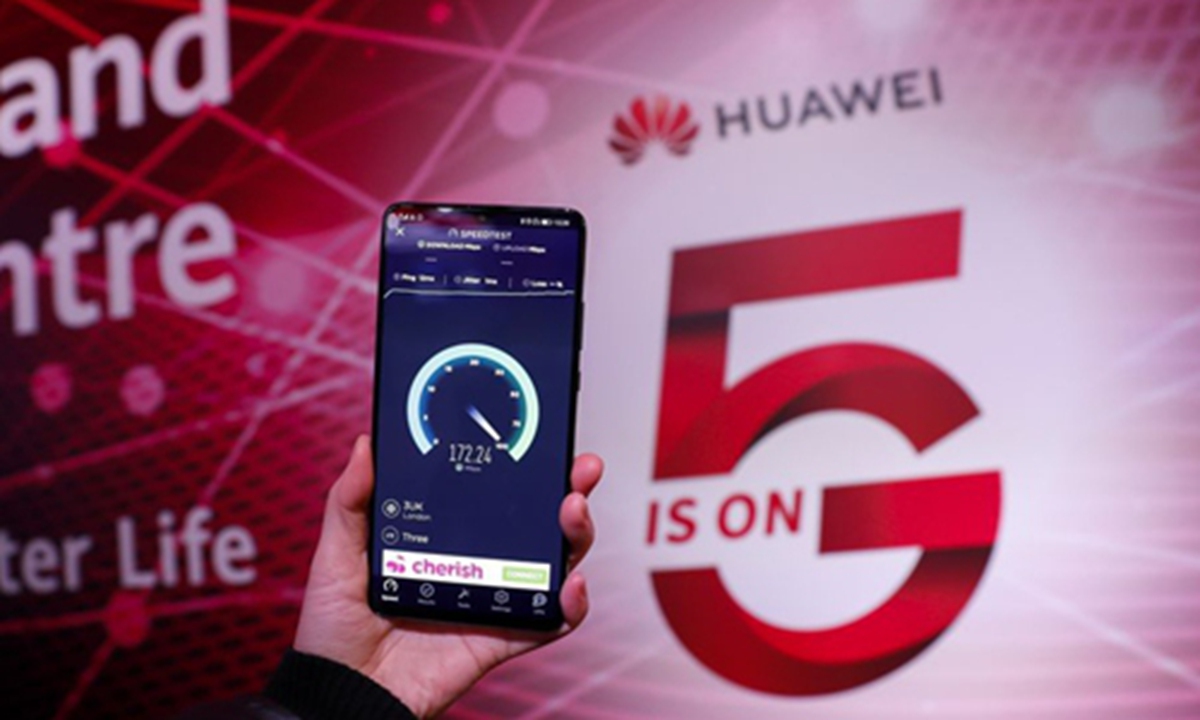Ottawa to blame for 5G compensation fight at home
Source: Global Times Published: 2020/9/14 21:14:31

Photo: Xinhua
The Canadian government and telecommunications operators are set to be locked in a fight over compensation issues for Ottawa's political move that has in fact blocked Huawei equipment from its 5G networks.Canada's federal government may not compensate major telecommunications carriers if it does announce a "formal ban" blocking Huawei's 5G equipment, while Canadian telecommunications companies are clearly looking forward to compensations from the government, Reuters reported on Monday, citing sources close to the matter.
Canada has been seen as a proactive accomplice in the US government's suppression of Huawei.
Even though the Canadian government appears to try to avoid upsetting both the Chinese side and the American side by delaying a crucial decision over whether to allow Huawei into its 5G networks, after the notorious political incident of arresting Huawei's CFO Meng Wanzhou at the request of the US government, it has effectively moved to block the Chinese company.
This is because its domestic telecom operators have to make decisions under political pressure. In June, Canadian telecommunications giants Bell Canada and Telus Corp said they would partner with Sweden's Ericsson and Finland's Nokia to build 5G networks, despite the fact that their 5G service could be more expensive for the Canadian consumers.
Several months ago, Telus' CFO had said it would launch 5G with Huawei technology. The change of mind obviously indicates the political headwinds it encountered.
According to Canadian media reports, ditching Huawei from its 5G networks means that wireless providers would need to replace Huawei's gear in their 4G networks, increasing the costs of 5G deployment by as much as 1 billion Canadian dollars ($758 million).
It is clearly unreasonable for telecom carriers to bear these additional costs that don't make any economic sense. Since political pressure has become the primary reason behind the decision-making, it is justified that the Canadian government should foot the bill. Also, taking their US neighbor as an example, US President Donald Trump signed a bill to offer $1 billion to compensate American telecom companies for replacing equipment from Huawei and ZTE.
Therefore, as long as the Canadian government makes a politically motivated decision on Huawei's 5G technology, its companies have the right to demand compensation. With its fiscal deficit running higher and higher, the government would owe a reasonable explanation to the taxpayers if it foots the bill. But it's questionable whether its people would buy the national security excuse.
After all, over the past three decades, not a single cybersecurity incident like those revealed by Edward Snowden or WikiLeaks has involved Huawei, and nor a single country has obtained evidence of any backdoors in Huawei products.
Maybe the only thing Canada can do now is to continue studying the issue and delaying a final decision. But as long as the government is looking to the White House for instructions on its 5G rollout, there will always be a string of troubles ahead for it.
Posted in: GT VOICE